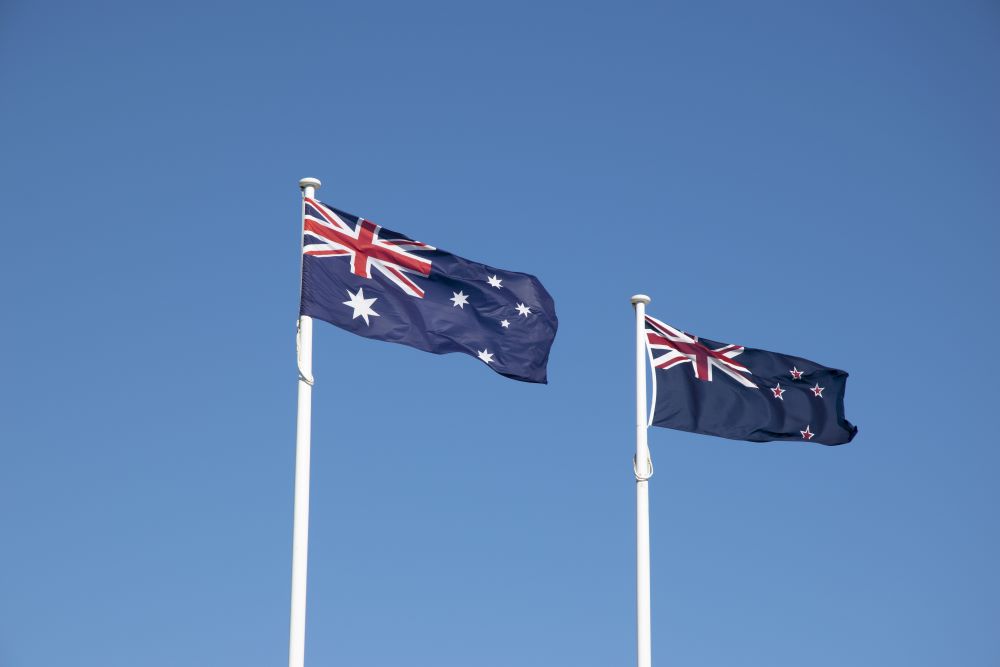
To mark Anzac Day, the Daily Update explores some of the latest trade news from Australia and New Zealand.
Anniversary approaching
ANZAC Day means we’re also closing in on a year since Australia and the UK’s free trade agreement came into force – effective 31 May 2023.
Both nations are keen to celebrate success stories made possible by the removal of trade barriers, with the A-UKFTA removing tariffs on 99% of goods and contributing an estimated £4.3bn to UK exports.
Austrade, the Australian trade department, highlighted one national success story in the form of Australian Rare, a premium manuka honey brand pleased to be stocked in iconic UK department store Harrods.
Business owner Natalie Bussau says the deal helped make trade possible. “Removing the 16% tariff has made this venture viable for a small business like ours,” she explained, adding:
“Another benefit seems to have been a lot of goodwill in the market. That helped us negotiate the import process.”
The deal was touted by the UK’s Department for Business and Trade (DBT) as benefitting the 13,000 SMEs already trading with Australia, though not everyone is happy.
Earlier this year, a campaign won the right to challenge the government over A-UKFTA, as reported by the Grocer, after successfully arguing that the deal could undermine the UK’s net zero ambitions owing to the greater environmental impact of Australian meat and dairy products. It adds to the questions faced by UK prime minister Rishi Sunak over his administration’s commitment to its climate goals in recent weeks.
It also raises the question of protecting domestic supply of these products, as dissatisfaction among farmers and concerns about food standards contributed to the undoing of the UK-Canada trade talks.
AUKUS liberalisation
The US announced plans to reduce the export licencing requirements placed on defence companies under the terms of the AUKUS security partnership.
The 80% reduction in requirements, thought to be worth US$7.5bn, will make it easier for US firms to export certain military items, missile technology and hot engine items without a licence.
The exact terms of the new licencing regime will need to be decided within the next 120 days.
A spokesperson for the US State Department told Reuters:
“Exemptions in our export control systems, within a framework of shared standards with Australia and the UK, are key to harnessing and maximizing the innovative power residing in our defence industrial bases.”
The news was welcomed in Australia, where a spokesperson for the Defence Department described the updated regime as “another significant step towards establishing a seamless environment for innovation, cooperation and collaboration”.
The security pact, first signed in 2021, is designed to address concerns about China’s growing aggression in the South China Sea. Split into two pillars, the second concerns items addressed by the licencing changes – types of high-tech defence equipment – while the first focuses on the supply of nuclear submarines to Australia.
Thailand-New Zealand trade boost
Thailand and New Zealand have elevated their free trade agreement from a Closer Economic Partnership (CEP), first signed in 2005, to a strategic partnership, which will come into effect by 2026.
Noting that bilateral trade between the two nations has the CEP came into force, New Zealand’s new prime minister Christopher Luxon said that the visit has led to a new, “ambitious goal to triple our two-way trade by 2045”.
His visit to Bangkok last week marked the first such trip by a New Zealand leader in over 11 years.
Thai prime minister Srettha Thavisin also welcomed the new arrangements, highlighting that the enhanced agreement commemorates 70 years of Thai-NZ diplomatic relations. “This will create the momentum for us to further expand and deepen cooperation in all dimensions,” he said.
New Zealand’s Foreign Affairs & Trade Department writes that New Zealand’s major exports to Thailand include agricultural products, such as apples, wood pulp and dairy product, while motor vehicles, tyres, plastics and air conditioning units are common Thai imports.
Last year, figures revealed that bilateral trade between the two nations was worth NZ$4.4bn in 2022.

